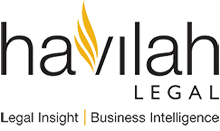In this article Bruce Havilah outlines a checklist of the specifics that your committee (or board) might want to consider when it comes to your organisation’s succession in electing new office holders.
Further, for those organisations who have had their AGM’s already, Bruce discusses some useful tips when inducting your new committee/board member/s:
The Elections
1. What skills are missing around your boardroom table?
If you don’t know the answer to this question , then your board needs to consider completing a ‘skills audit’ to assess and compile a matrix of both the strengths and the skill gaps around your board table.
There are good tools available to achieve this but everyone needs to embrace the good culture of healthy self assessment for it to be meaningful.
Then you should look at your current boards performance which is even more confronting to look at objectively.
Your board skills matrix is certainly not difficult to compile from the CV’s you have already considered when each member was nominated and if they are out of date they can easily be updated.
Performance fundamentally starts with the attendance record of your current board members. A board member simply can’t make any meaningful contribution to the organisation if they don’t regularly attend board meetings.
If your board or committee genuinely wants to recommend a new ‘candidate’ to your voting members, or even recommend the re- election of an existing board member , the credibility of that recommendation fails if it is not based on objective information including completing this analysis.
If your board performance isn’t measured then it can’t be monitored.
2. What type of person are you looking for?
By this I mean the attributes you are seeking in an individual looking to take up a board position.
Is the person likely to offer deep insights into decision making and to be a genuine contributor to your board? Alternately do some of your board members actively lobby members to install someone who doesn’t ‘rock the boat’?
A good board should ideally contain a genuine diversity of individual skills and views.
Beware of selecting someone who doesn’t have the quality of being a genuinely critical strategic thinker, who asks (sometimes difficult) questions that the board should specifically turn its mind to.
I will deal with the right questions to ask at another time, but as a general rule you must be able to measure how any decision will benefit the organisation and its stakeholders before even considering it.
Details of monumental board blunders are carefully recorded in the various legal cases (James Hardie, Centro and HIH) against directors who failed in their duty of care and diligence to critically analyse a particular decision.
The Truth About Stability
In my work I have sometimes found members of boards exhibiting a reluctance to embrace a person with skills that the board lacks, simply out of fear that they might ask some of the harder questions; or may even offer a fresh approach and disturb the sometimes sacrosanct ‘status quo’.
This approach can arise from the unhealthy culture of what I have identified (in some of my previous work) as the presence of ‘pleats’ of power around the board table.
‘Pleats’ occur where one or a small number of self appointed leaders of the Board mistakenly believe that they know best, and then try to control the direction of the entire organisation and its decision making.
This can regrettably be to the exclusion of other less assertive board members whose input can be disregarded.
The problem with this approach is that boards really need to capitalise on the diverse experience of every person around the board table.
After all, if agreeing with everyone was a prerequisite of being elected to a board, you may as well have a board of one person dictating all of the decisions – saving the cost of convening (sometimes expensive) board meetings.
Be careful not to mistake the old chestnut (I often hear) of a board nominating a person to ‘keep the ship steady’ or not ‘rock the boat’.
This is not necessarily acting in the interests of the organisation if it is motivated by the need for ultimate control by those whose boat may certainly need some healthy rocking!
If, as a diligent board member, you suspect that a nomination is about recruiting a ‘yes’ man (or woman) to vote with those few individuals who want to wield the power, then please just rethink that nomination and use your own independent voting discretion solely in the interests of the organisation!!
In the very worst cases, I have seen an unhealthy board culture of control which even resorts to the unfortunate use of political manoeuvring – like strategic ‘character assassination’ to deter new members who they feel will threaten their perception of the balance of power.
Look for the signs!
3. Are you preparing for a thorough induction for incoming board members including the provision of vital information such as:
- Your current stamped Constitution (and a document identifying the most recent amendments).
- A list of your current legal agreements and other compliance obligations; whether with stakeholders or government; this should include a schedule of the timing of each obligation and the expiry of each legal agreement.
- An organisational management chart including the Board itself and its sub-committees. This should clearly define the delegated authority (not responsibility!) throughout the organisation.
- A précis of each current Director’s skills and experience including their involvement in any subcommittees.
- Directors and officers insurance policies
- Any board charter or code of conduct and any policy defining the delegated authority limits that the board has granted to the CEO or to any sub-committees
- A graphic of the relevant financial relationships between any group or any funded related entities
- Board and committee meeting dates and the expectation of the required commitment from an incoming board member
- The most recent audited statutory accounts, the latest management accounts and a full five year financial plan.
All these documents will ensure your newly elected members are properly inducted and can contribute to your board from the first meeting following your AGM!
Conclusion
I have no doubt you will all have considered many, if not every one of these best practices.
If there is even one thing that rings any alarm bells for you, then the good news is that there is certainly still time to act and to meet your own personal legal obligations which is the only true to measure of your effectiveness.
Bruce Havilah

